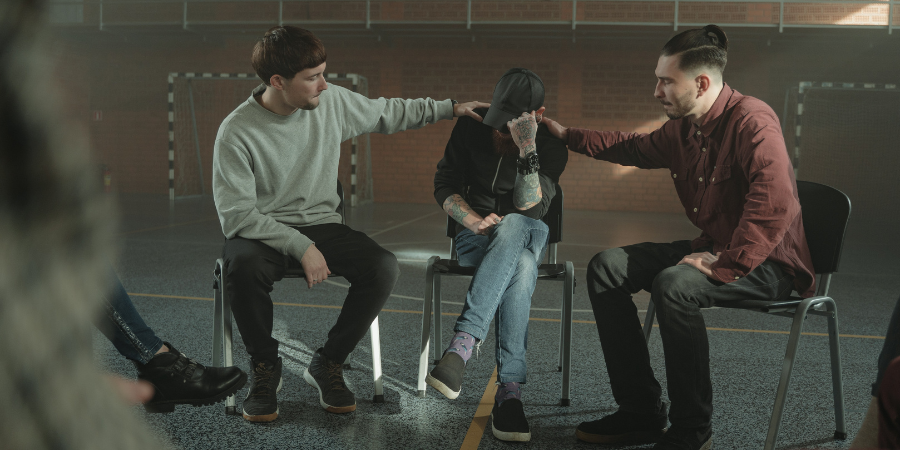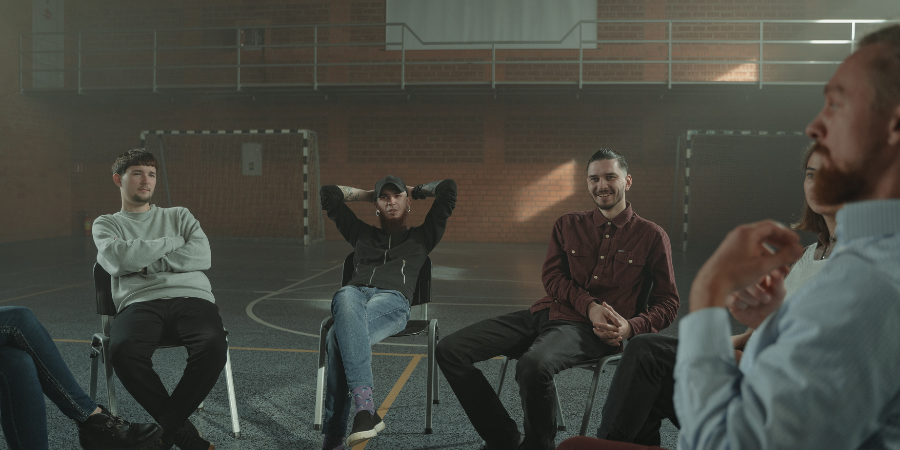Last Updated:
November 3rd, 2025
Witnessing a loved one battle with the disease of addiction can be soul-crushing. You share their pain, try to encourage lifestyle change, and even give ultimatums, yet no approach breaks through their guard.
At these times, a drug intervention may become a lifeline and a beacon of hope for your loved one.
We’re here to help you understand the importance of interventions and how they work. We can help you plan the most effective drug intervention that supports a troubled loved one in taking the first step towards a brighter future.

What exactly is a “drug intervention”?
When watching a loved one’s addiction worsen, you may recognise the locus of control slipping away. At one time in the past, you could see they still had what it takes to stop their drug use alone, but now, this power has slipped through their fingers like water, and outside help has become a necessity.
This is where drug interventions can save a life.
Drug interventions are a planned course of action where an addicted person’s loved ones come together and help them start the recovery process. The intervention is designed and shaped by the support group, sometimes with the help of an addiction counsellor or professional interventionist.
The word intervention often falls on our ears carrying significant weight and gravitas. Indeed, interventions may be needed when addiction has become severe, and, to some degree, are used as a last resort. Interventions come from a place of love, demanding positive lifestyle changes from a loved one, but they can be met with disagreement or even some hostility.
This is why planning an intervention with utmost care and empathy is so important, so that a loved one does not shut down and choose to turn their back on your genuine, heartfelt pleas.
How can I be certain that a drug intervention is needed?
In the same way that each person’s recovery journey is unique, so are the criteria that show when an intervention is a matter of urgency. It is never easy to decide when an intervention needs to take place. Many families wait in hope that a loved one reaches a turning point on their own, only to find that drug addiction makes this almost impossible.
Here are some of the clearest signs that intervention is needed:
- When behaviour becomes dangerous: Addiction almost always leads a person towards increased risk-taking behaviour, given enough time. An addicted person puts themselves in greater danger in many ways, but this can also extend to placing you and other loved ones in danger, too, such as them driving while under the influence, or allowing dangerous people into your home. If you are put in danger through their drug use, you can immediately justify the necessity of an intervention, as you should never be placed in harm’s way due to their actions.
- When a consensus from loved ones is reached: The strength of an intervention is often built on the love of those who organise it. The intervention group needs to think collectively about whether they share the same concerns. A collective agreement that ‘something’s got to change’ signals it’s time to take action.
- When previous promises to change go unmet: Undoubtedly, people go through painful broken promises when trying to push a loved one to change. The addicted person may have earnestly expressed a desire to change, and sometimes followed through, but only briefly. You then see cycles repeating, and each time, their relapses can deepen the need for outside intervention.
- When health begins to deteriorate: Seeing a loved one’s addiction deepen usually results in rapidly worsening physical and mental health. If you have the feeling that their addiction has resulted in signs like rapid weight loss, cognition issues, mood instability or isolation, they may need professional intervention.
What are the steps in planning an effective intervention?
A drug intervention that is planned carefully and thoroughly can become the turning point of a person’s life. There are general principles that can be used as steps to plan the strongest intervention possible for your loved one:
Where can I find help for a loved one with an addiction?
If you’re preparing for an intervention or supporting someone caught in addiction, you’ve already shown courage and compassion. Please remember that you don’t need to face this alone.
At Oasis Runcorn, we specialise in detox and rehab programmes that help people escape addiction and rebuild their lives. Our expert staff combines medical care, therapy, and family involvement to ensure lasting recovery and restored relationships.
Reach out to us today. The step you take now could be the start of your loved one’s path towards healing and the drug-free future they deserve.
(Click here to see works cited)
- Mark Michaud, “Study Sheds Light on Source of Drug Addicts Risk-Taking Behavior.” URMC Newsroom, URMC Newsroom, 5 Aug. 2020, www.urmc.rochester.edu/news/story/study-sheds-light-on-source-of-drug-addicts-risk-taking-behavior.


